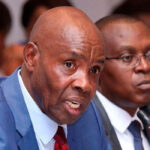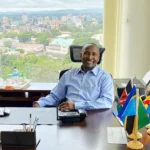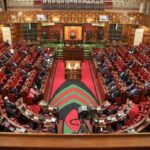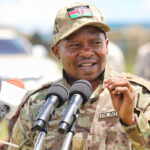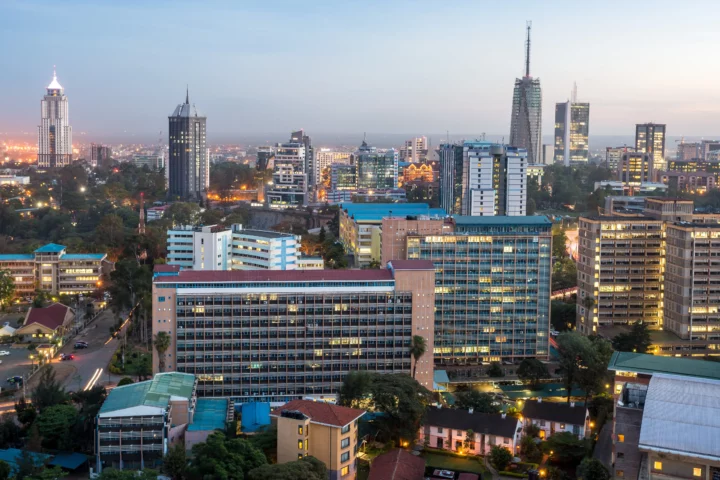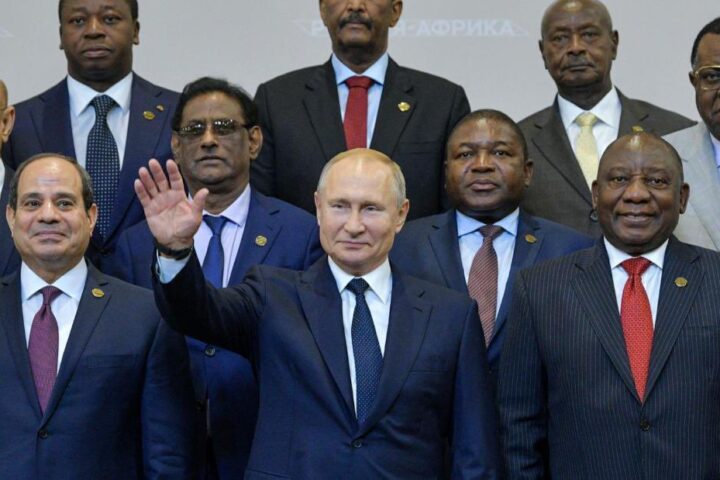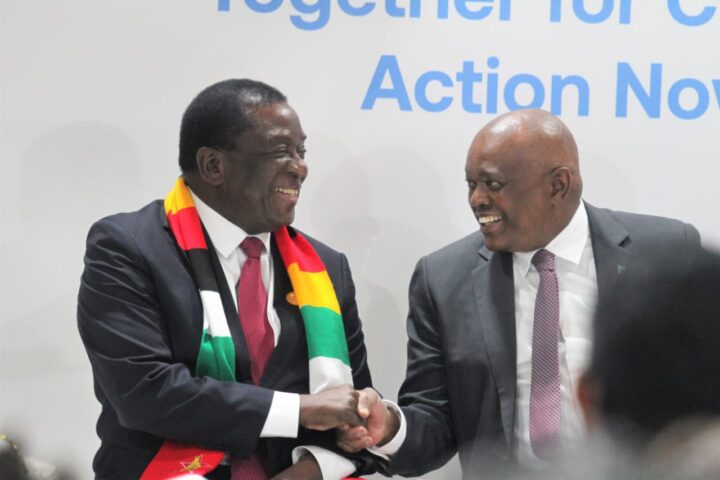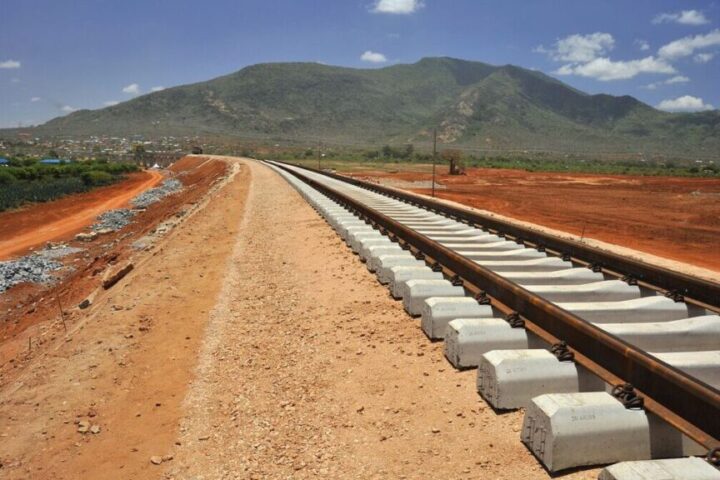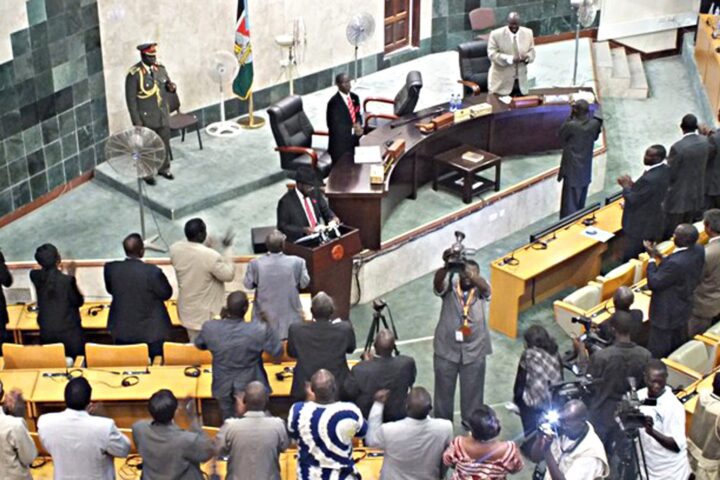South Africa has announced that 40 additional countries are eager to join BRICS, the group of fast-developing economies consisting of Brazil, Russia, India, China, and South Africa. As the current chair of BRICS, South Africa is hosting a three-day meeting in Johannesburg next month, where BRICS expansion will be a key topic of discussion.
According to South Africa’s BRICS ambassador, Anil Sooklal, countries such as Argentina, Iran, Saudi Arabia, and the United Arab Emirates have expressed their interest in joining the bloc. Sooklal emphasized that this interest signifies the confidence that Global South nations have in the organization.
Sooklal noted that 22 countries have formally approached BRICS countries to become full members, while an equal number of countries have informally inquired about membership. BRICS, which is seen as a powerful force, now accounts for 31.7% of global GDP when measured by purchasing power parity, surpassing the G-7 – a forum of advanced democracies that includes the United States.
However, analysts have differing opinions regarding the concrete achievements of BRICS since its establishment in 2009.
The interest from these additional countries highlights the growing influence and appeal of BRICS on the global stage. What started as a platform for emerging economies to collaborate and assert their collective influence against the Western-dominated global order has attracted the attention of nations from various regions, including Latin America, the Middle East, and the Gulf.
The potential addition of these 40 countries would significantly strengthen BRICS as a force to be reckoned with on the global economic and political front. By expanding its membership, BRICS aims to further bolster its impact and voice in international affairs, as well as provide a platform for like-minded nations to pursue common goals and interests.
BREAKING: South Africa announced that an additional 40 countries have expressed their desire to become part of the BRICS alliance.
The BRICS nations has gained significant influence on the global stage due to their rapidly growing economies and increasing political clout. pic.twitter.com/u1h9z74Ghb
— Ericson Mangoli (@ericsonmangoli) July 21, 2023
For many countries seeking to join BRICS, the allure lies in the opportunity to gain access to a powerful network with ample economic potential. BRICS members have experienced rapid growth in recent years and present lucrative investment opportunities for other nations. Furthermore, being part of a cohesive bloc with shared objectives and values can help countries navigate challenges in an increasingly complex and interconnected world.
However, while the interest in joining BRICS is significant, the organization still faces challenges in solidifying its achievements and impact. Critics argue that BRICS has yet to deliver substantial concrete outcomes since its inception. Despite its increasing economic might, BRICS has struggled to transform its collective power into meaningful policy change or tangible solutions to global problems.
Moreover, the differing priorities and interests of member countries have sometimes hindered the group’s ability to present a united front. The diversity within BRICS, both in terms of size and political systems, can create obstacles in the decision-making process and limit the group’s cohesiveness.
Nonetheless, the eagerness of 40 more countries to join BRICS highlights the growing recognition of the organization’s potential as a counterweight to the Western-dominated global order. As South Africa prepares to host the upcoming summit, the expansion of BRICS will undoubtedly be a subject of great importance.
The New Development Bank, also known as the BRICS Bank, has made significant strides in lending and promoting economic development among its member countries. With a focus on financing infrastructure projects and sustainable development, the bank has played a crucial role in fostering cooperation and trade among the BRICS nations.
Since its establishment in 2014, the New Development Bank has approved numerous loans for various projects, ranging from renewable energy initiatives to transportation infrastructure. This injection of capital has not only addressed the infrastructure gap in the member countries but has also fostered economic growth and created job opportunities. According to Daniel Bradlow, a professor at the University of Pretoria, the bank’s lending has led to increased trade between the member countries, further enhancing their economic integration.
Moreover, the New Development Bank’s accomplishments have garnered international attention. Contrary to initial skepticism, the bank has proven to be a significant player in the global development finance landscape. Mikatekiso Kubayi, a researcher at the Institute for Global Dialogue at the University of South Africa, highlights the formation of an international development finance institution as one of the most prominent achievements of the bank. This establishment signifies the acknowledgment and realization of the BRICS member countries’ potential to contribute to global development efforts.
In addition to lending, the New Development Bank has also been actively exploring alternative ways of conducting trade and promoting local currencies. This proactive approach demonstrates the bank’s commitment to enhancing economic cooperation among its member countries. By reducing reliance on international currencies and encouraging intra-BRICS trade, the bank has laid the groundwork for greater economic self-sufficiency and resilience.
Despite these achievements, Aly-Khan Satchu, an economic analyst, acknowledges that the New Development Bank was predominantly conceptual in nature during its early years. However, he believes that the bank’s long-term impact lies in its ability to create a serious pole of influence in the global economic landscape. As the world becomes increasingly multipolar, with power shifting away from traditional Western powers, BRICS represents a united front of emerging economies that can shape global economic policies.
With the exception of Russian President Vladimir Putin, who is unable to travel to South Africa due to being wanted by an international court for war crimes in Ukraine, all the heads of state from BRICS will be personally attending the summit next month.






